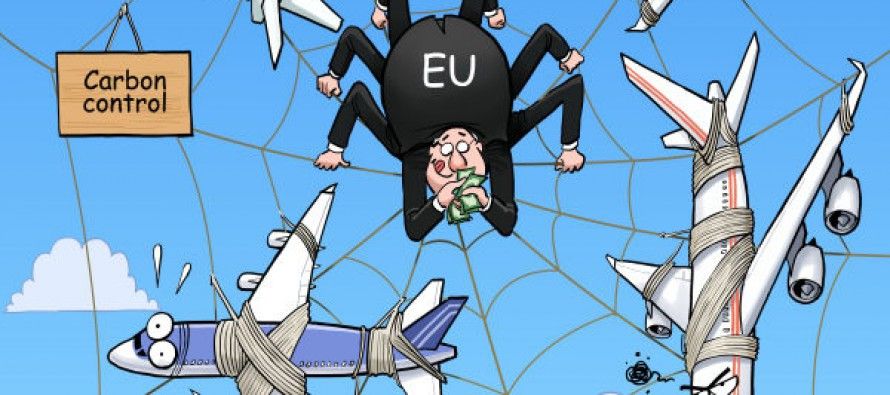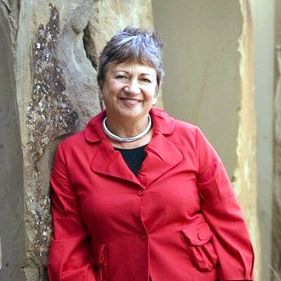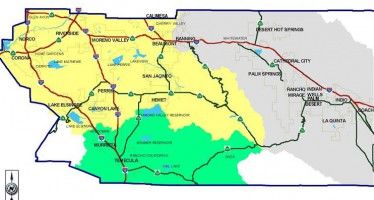CARB update: Powers expanding beyond AB32

 Irish wit Oscar Wilde once quipped, “The bureaucracy is expanding to meet the needs of the expanding bureaucracy.” He died in 1900, but he would have recognized the California Air Resources Board.
Irish wit Oscar Wilde once quipped, “The bureaucracy is expanding to meet the needs of the expanding bureaucracy.” He died in 1900, but he would have recognized the California Air Resources Board.
Under AB32, the Global Warming Solutions Act of 2006, CARB was charged with overseeing the lowering of greenhouse gas emissions to 1990 levels by the year 2020. That effectively meant a 25 percent reduction.
Mission accomplished. As I reported from a March hearing, CARB Officer Richard Corey admitted, “The last three years have seen the biggest drop in carbon emissions” in the state’s history. He said California has nearly met its 1990 levels of carbon emissions.
But CARB’s AB32 functions are not going gentle into that good night, to paraphrase another Irish wit, Dylan Thomas.
Claiming authority AB32 actually did not provide, CARB has expanded its mandate well beyond AB32 and is now also responsible for the Low Carbon Fuel Standard, the Renewable Portfolio Standard, and the cap and trade carbon allowance auction program.
Cap and trade is the program set up a year ago that conducts quarterly auctions of carbon dioxide emissions, with “dirty” companies trading for “clean” credits from “clean” companies.
Specifically, CARB is targeting transportation, electricity, industry and commercial and residential sectors for emissions reductions. These sectors “must reduce … greenhouse gas emissions through the direct regulatory measures recommended by the program,” a study by the Legislative Analyst’s Office found. “However, after accounting for GHG emissions reductions resulting from the plan’s direct regulatory measures, the four sectors must together achieve additional reductions of approximately another 33 MMTCO2E (millions of metric tons of carbon dioxide equivalents) through the cap-and-trade program.”
Numerous studies have shown that California’s cap-and-trade auctions will lead to significantly higher energy costs.
The idea behind the cap-and-trade program is that annual greenhouse gas emissions from certain sectors of the economy will be capped, started in 2013. This cap will be reduced over time, enforced through a carbon allowance purchasing system, managed by CARB.
Yet, the Legislative Analyst explained in a 2012 letter to the Legislature that CARB’s cap-and-trade program is not needed to meet AB32’s mandates.
The LAO has also warned the Legislature that cap and trade would greatly increase production costs for businesses forced to comply with CARB’s regulations. But the Legislature has taken no action to curb CARB’s overreaching.
AB32 concerns
For five years, the Legislative Analyst’s Office has raised questions about CARB’s overreaching. The LAO has specifically expressed concerns with the AB32 scoping plan, and the non-legislated Low Carbon Fuel Standard. CARB has never done a rigorous analysis of the costs and benefits of the scoping plan.
The 2008 Legislative Analyst’s Office review found that CARB’s early economic analysis raised numerous questions:
* How implementation of AB32 was compared to doing business-as-usual;
* The incompleteness of CARB’s analysis.
* How specific greenhouse-gas reduction measures are deemed to be cost-effective;
* Weak assumptions relating to the low-carbon fuel standard;
* A lack of analytical rigor in the macroeconomic modeling;
* The failure of the plan to lay out an investment pathway;
* The failure by CARB to use economic analysis to shape the choice of and reliance on greenhouse gas reduction measures.
The LAO continues to use the 2008 report in legislative testimony, as it is still relevant and has been disregarded by the Legislature and CARB.
“[By] assuming that no actions are taken to reduce GHG emissions by 2020, CARB overstates the problem that it then credits the scoping plan with addressing,” the LAO’s 2008 report found.
The scoping plan includes an inconsistent and incomplete evaluation of costs and savings associated with its recommended measures, the LAO has consistently reported.
Low Carbon Fuel Standard
The LAO said CARB had a very weak basis for its assumptions about the Low Carbon Fuel Standard.
The $25 billion in annualized costs that CARB attributes to the scoping plan are largest in the Low Carbon Fuel Standard. That measure alone accounts for $11 billion, or 44 percent of the scoping plan’s annualized costs. Yet it provides just less than 9 percent of the plan’s emissions reductions, the 2008 report found.
According to the report, “However, CARB further claims that these $11 billion in annualized costs would be offset by equivalent savings on petroleum products (mainly gasoline) that would no longer be purchased for transportation purposes. Therefore, according to CARB, the net annualized cost of this measure is zero.”
Tiffany Roberts, an economist and analyst with the LAO, has been critical of CARB’s macroeconomic analysis. “The findings are highly dependent upon key assumptions, some of which are based on incomplete data,” she said at the Senate Transportation hearing in March, which I reported on.
However, nothing is likely to change. Gov. Jerry Brown is a big supporter of AB32. And CARB Chair Mary Nichols, pictured above, is one of his longtime associates.
Related Articles
Sen. Boxer: Conservation would solve drought
Can California’s zero-sum water wars only be resolved by a system of stern water conservation? That’s what California U.S.
Civil libertarians and police embrace asset-forfeiture compromise
SACRAMENTO – The California Assembly on Monday approved one of the most significant civil-liberties reforms of the legislative session. Remarkably,
AB 32 Poll To Be Released Today
Later today a poll will be released demonstrating that a large majority of Californians want AB 32 suspended. The consequences




